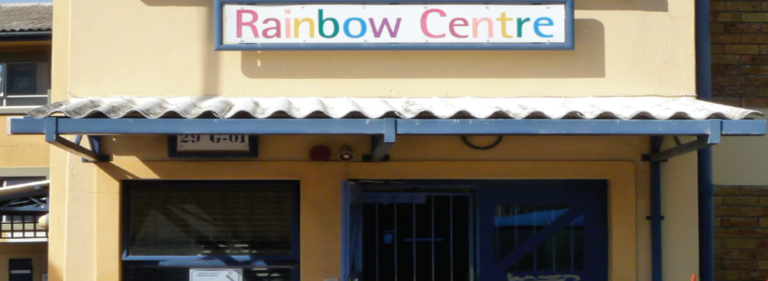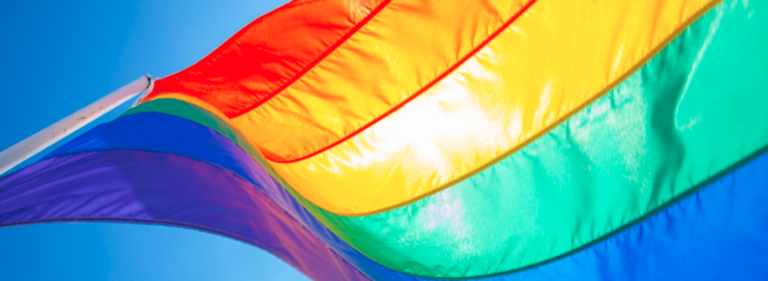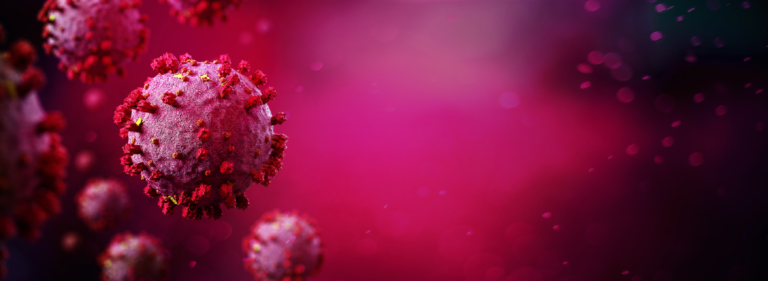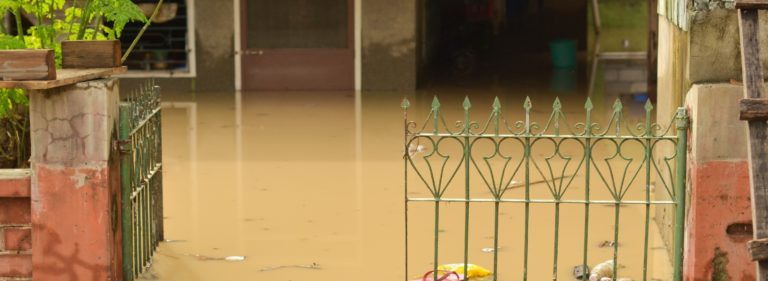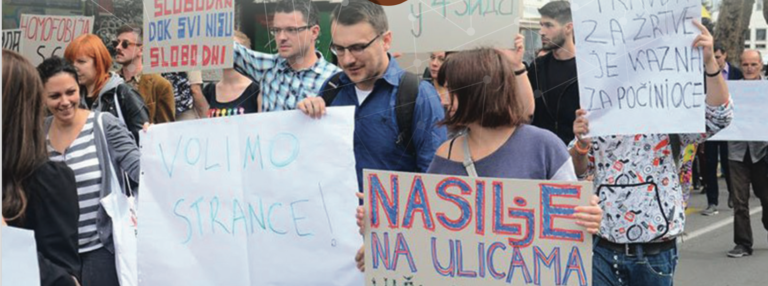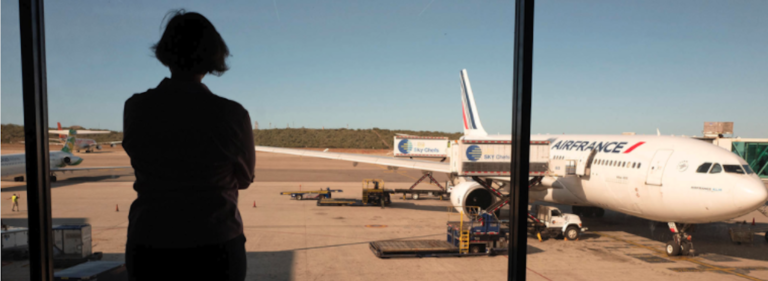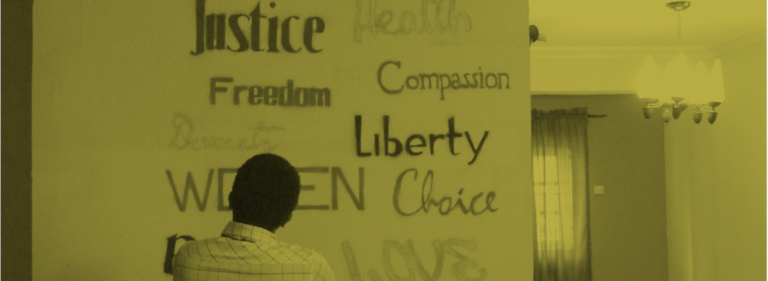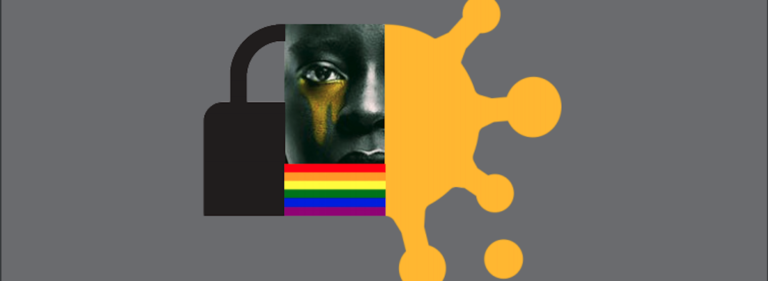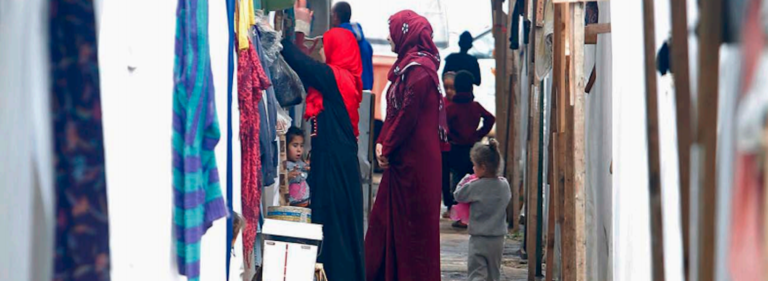“Disaster managers do not, at present, consider the needs and capacities of LGBT people in their disaster planning or identify them as a specific audience for preparedness advice.” If you’re familiar with Edge Effect for a while, you likely know that it was this sentence that inspired Emily Dwyer and Lana Woolf to found our organisation back in 2016. It’s a sentence worth revisiting, especially in honour of International Day of Disaster Risk Reduction this 13 October.
The theme of International Day of Disaster Risk Reduction (DRR) is good governance—and in keeping with this year’s theme, it’s time we re-visit the ways in which DRR governance can work for people with diverse SOGIESC—and the consequences when it falls short. Good governance for DRR is all about reducing the occurrence and impact of disasters. While no amount of policy development can prevent a tsunami from breaking on your shores (but adopting aggressive climate change policies will ultimately have positive outcomes for our planet), good DRR governance can reduce the impact of disasters before they happen and speed up recovery.
What does good DRR governance mean for people with diverse SOGIESC?
Well, the first step is for DRR governance structures—local, regional, national and multi-lateral—to recognise the unique needs and capacities of people with diverse SOGIESC. This means asking different people with diverse SOGIESC about their concerns and needs. It’s important that the diversity of people with diverse SOGIESC are included: trans women, gay men, intersex people, cisgender lesbian women, and non-binary folk (and others!) have different needs. It’s not enough to ask the most visible groups within the diverse SOGIESC community about their needs. Disaster managers must put in the work to understand the different needs of different groups.
Good governance means inclusion in pre-emergency social safety nets and welfare schemes. Prior to the 2004 Indian Tsunami, Aravanis weren’t covered by any welfare schemes, nor were they able to easily access ration cards. This mean that in the aftermath of the tsunami, most Aravanis were ineligible for cash payments (while men and women were eligible). It also meant that Aravanis had no access to safe temporary housing and were forced to sleep (and change their clothes) out in the open. Not only did this strip Aravanis of their dignity, but it put them at significant risk of gender-based violence and discrimination.
Good governance means creating relief systems that are not just inclusive of people with diverse SOGIESC but are also designed with the specific circumstances of people with diverse SOGIESC in mind. Following the 2010 Haiti earthquake, for instance, only women were able to access food. This is a common distribution policy: women are more likely to be food insecure than are men, and women are more likely to distribute rations to their family members. These policies, however, mean that people who aren’t in heterosexual relationships lose out: for instance, gay men and many transgender people were not able to access food. Many Haitians with diverse SOGIESC had been ostracised by their families and therefore aren’t able to ask a woman for help. But this doesn’t just negatively impact men with diverse SOGIE. Lesbian, bi and trans (LBT) women reported that they were reluctant to obtain food aid because distribution lines were often chaotic. Many women who waited in the lines brought male relatives with them for protection—but LBT women didn’t necessarily have male relatives to bring. Expanding understandings of households to include same-gender couples and rainbow families would better enable people with diverse SOGIESC to access the relief they need.
Good governance means inclusion in post-disaster needs assessments. In our Down By the River report, we specifically recommended that sexual and gender minorities be included in DRR and humanitarian research, assessments and evaluations. The Fiji Government Post-Disaster Needs Assessment (PDNA) following TC Winston made no mention of the impacts on sexual and gender minorities. The PDNA did specify that ‘no information was available on issues related to sexual orientation,’ but no steps were taken, nor recommendations made, to address this data gap. It’s not just enough to include people with diverse SOGIESC in PDNAs, but specific recommendations need to be made so that humanitarian agencies and relief organisations can adequately meet the needs of people with diverse SOGIESC.
Good governance isn’t just about keeping the needs of people with diverse SOGIESC in mind. It’s also about bringing people with diverse SOGIESC into DRR planning and response and drawing upon their unique capacities and knowledge to strengthen DRR policies. For instance, research shows that bakla communities in the Philippines are adept at building widespread social networks that enable them to remain resilient in the face of disaster, and that when bakla are engaged in DRR decision-making spaces, DRR policies will be more effective. The internal resilience that members of the diverse SOGIESC community build should also be incorporated into DRR planning and response. Working with teenage trans women in the Philippines, for instance, offers unique insights into adaptivity and psychological resilience, while the informal networks of the diverse SOGIE community in Fiji offers and entry point for humanitarian workers to support sexual and gender minorities.
Good governance means taking the lead from diverse SOGIESC communities and activists. Activists like Illi push for the inclusion of people with diverse SOGIESC in post-disaster needs assessments and distribution, even when this means combatting homophobia and transphobia by other service providers. Manisha, the Executive Director of Blue Diamond Society, has frontline experience in providing relief to the LGBTIQ+ community in Kathmandu following the 2015 earthquake, and continues to be involved in advocating for the rights of the sexual and gender minorities during COVID-19. Lavetanalagi Seru has been working for diverse SOGIE rights and inclusion in humanitarian settings by engaging with TC Harold and COVID-19 response work, and facilitating trainings for civil servants to ensure people with diverse SOGIESC are included in Fiji’s DRR work.
Underpinning these examples of good governance is the need to address gender norms. Disasters have differential gendered impacts because of gender norms: engaging in gender norm change work will lessen these differences, and enable all people, regardless of sexual orientation, gender identity or expression, to better recover from disasters. This means adopting taking a structural approach: working with faith leaders to include and empower sexual and gender minorities, rather than blame them for disasters; for norm-change work to focus on community acceptance; for diversity and intersectionality to lie at the heart of DRR and humanitarian programming.
So, this International DRR Day, it really is all about governance. We need to make sure that this governance is working for everyone—including people with diverse sexual orientations, gender identities and expressions, and sex characteristics.





